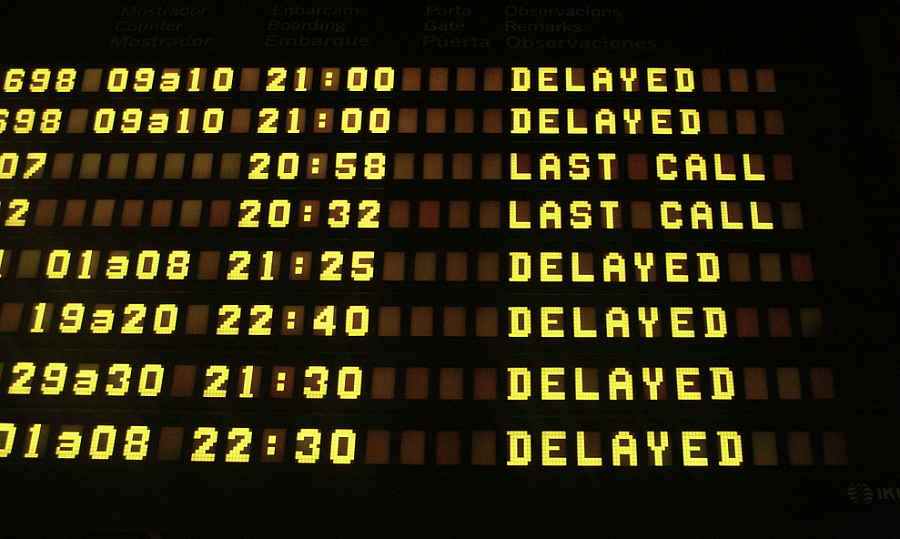Medicaid backlogs delay ACA’s promise for many Californians

The Affordable Care Act promised to make health care accessible to many more low-income residents in California. While the state’s uninsured numbers have already been cut in half, for hundreds of thousands of people, affordable care is still a dream.
As of the end of July, the state reported a backlog of nearly half a million unprocessed Medicaid applications. Advocates say nearly all applicants are eligible for health care under the ACA’s new guidelines, either through Medi-Cal (the state’s Medicaid program) or Covered California.
For people in the unprocessed pile, the long delays amount to medical limbo. If the state eventually declares them eligible for Medi-Cal, they are entitled to reimbursement for medical expenses going back to the month they applied. However, without an insurance card in hand, health advocates say most people are reluctant to seek care.
“People don’t want to get themselves in fiscal trouble,” said Kim Lewis, managing attorney of the California office of the National Health Law Program. “If they don’t have that assurance, they’re likely to wait until they need care. At that point, they are sicker and more desperate.”
The California Department of Health Care Services (DHCS) says three factors are primarily responsible for the processing delays: the large volume of applicants, technical glitches due to the hasty launch of computer systems, and duplicate entries or data entry errors from applicants. In July, the federal Centers for Medicare and Medicaid Services warned California that it was in violation of federal law. The Affordable Care Act requires that states process all applications within 45 days.
Health advocates have sent a letter (PDF) to Gov. Jerry Brown citing examples that bring home the human cost to the paperwork delays. For example, a young Spanish-speaking working mother applied to Medi-Cal in January, but had not heard back when she suffered from gallstones and required surgery. After a legal aide attorney intervened on her behalf, San Mateo County health workers discovered that her application had been approved in the county’s system, even though it was not showing up in the statewide Medi-Cal system.
In another case, a woman who earned $850 per month was awaiting a decision about her Medi-Cal application when she found a lump under her chin. She paid out of pocket for a MRI, which confirmed cancer. Her doctor recommended a MRI, but not knowing if she has coverage, she postponed treatment.
DHCS says it is working hard to move through all forms. The agency says the number of unprocessed applications should decrease to 350,000 by the end of August. That’s down from 600,000 at the beginning of July, and a high of 900,000 in March.
By the end of August, the agency predicts the bulk of remaining applications will fall within the 45-day wait period, putting California back in good standing with federal officials. However, health advocates are challenging those calculations. In an Aug. 1 letter (PDF) to the Centers for Medicare and Medicaid Services, the nonprofit group Health Consumer Alliance (HCA) estimated that “more than 200,000 pending applications will certainly be outside of the 45-day limit.”
HCA also noted that of the 490,000 applications that remained in July, more than 400,000 had been pending for more than 45 days, with 58,000 applications pending since January.
To deal with the heavy backlog, the health advocacy group recommends granting presumptive eligibility to any residents who applied more than 45 days ago and have still not heard from the state. The group urged the state to inform all applicants about the status of their applications, which it has not yet done. In addition, HCA recommends automatic renewals for those who already receive Medi-Cal while California and county officials sort through new applications.
In a reply back to advocates, the state’s DHCS said it would communicate with all individuals who had applied but not received word on their eligibility. As for Medi-Cal renewals, the department said it has developed a revised policy that will streamline the process. However, the agency said it will not grant presumptive eligibility, even to applicants who have been waiting 45 days or longer. Officials said that allowing people into the program who do not qualify could compromise its integrity by approving those who are not eligible.
Which raises the question, has California already compromised the program’s integrity by failing to make good on its promise to so many because of technical and bureaucratic glitches? The delays highlight once again the discrepancies between the health care received by those with means and those without, and casts a lingering shadow over California’s much-celebrated ACA rollout.
Photo by Jordiet via Flickr.

